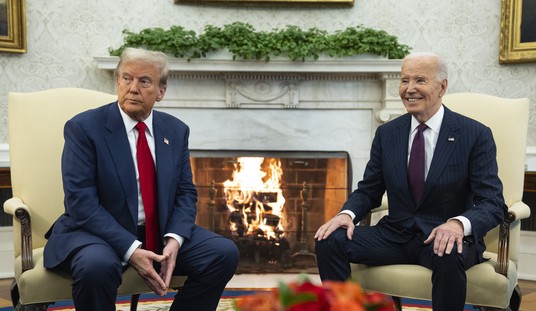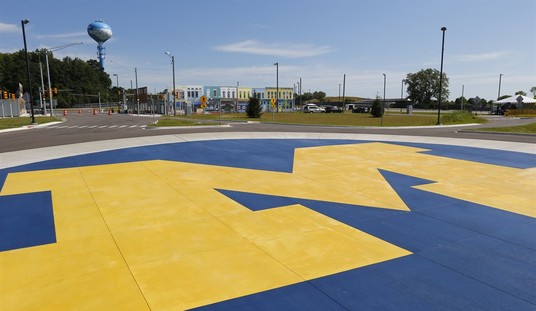In what was believed to have been an assassination attempt, the prominent American-born Israeli activist Yehuda Glick was shot in Jerusalem on Wednesday by a motorcycle gunman. Glick, a controversial figure due to his advocacy in favor of allowing Israeli Jews greater access the Temple Mount, was wounded in the attack. The gunman is believed to have been an Arab.
In the wake of this incident, some members of Palestinian Authority Chairman Mahmoud Abbas’s Fatah faction issued praise for the would-be assassin.
Via Arutz Sheva:
Joining in on the praise of the assassination attempt was Sultan Abu Al-Einen, a member of the Fatah Central Committee and Abbas’s advisor on NGOs, who just last week praised the terrorist who murdered a three-month-old baby and 22-year-old woman in Jerusalem with his car as a “hero.”
“With great honor and pride…Fatah’s Jerusalem branch accompanies its heroic Martyr to his wedding (with “72 virgins” – ed.), Mu’taz Ibrahim Khalil Hijazi, who carried out the assassination attempt of Zionist rabbi Yehuda Glick,” wrote Al-Einen.
Israeli officials closed access to the al-Aqsa Mosque in Jerusalem following this attack. “Israel’s call to block access to the Temple Mount area of Jerusalem’s Old City—the first such closure since 1967—led the Palestinian government to call for armed resistance and accuse Israel of declaring war,” The Washington Free Beacon reported.
Following its praise for Glick’s attempted assassin and the individual who killed a baby and wounded seven others last week, Fatah has called for a “day of rage” in Jerusalem.
“Fatah calls to its fighters and to the masses of the Palestinian people to aid the Al-Aqsa Mosque and occupied Jerusalem,” read a statement released by Fatah translated from Arabic via Palestinian Media Watch.
“The movement called to set tomorrow as a day of rage throughout the homeland and in countries which are home to refugees, to express the Palestinian people’s opposition to any attack on the holy places and foremost among them the Al-Aqsa Mosque,” the statement said. “Consider desecration of Al-Aqsa as a declaration of a religious war against the Palestinian people and the Arab Islamic nations.”
Palestinian President Mahmoud Abbas also escalated tensions on Thursday by accusing Israel of declaring war on the Palestinian people.
“This dangerous Israeli escalation is a declaration of war on the Palestinian people and its sacred places and on the Arab and Islamic nation,” Abbas spokesman Nabil Abu Rudeina quoted the leader as saying in comments made to the Palestinian Ma’an News Agency.**
“Is this how the third Intifada begins?” The Atlantic’s Adam Chandler asked.
Prognosticators have been warning of a new Intifada for years as peace talks have faltered, fighting has broken out, and the region has been engulfed by conflict. While these predictions may have been premature, the return of the Temple Mount—the holiest site in Judaism and the third-holiest site in Islam—to the forefront of the crisis between Israelis and Palestinians augurs badly.
The bloody Second Intifada, which unraveled a rare era of (relative) calm and cooperation among Israelis and Palestinians, started in part because Israeli leader Ariel Sharon visited the Temple Mount in 2000 during a similar period of severely heightened tension and incitement. The violence of recent weeks only makes the burgeoning diplomatic crisis between the United States and Israel seem more dire.
With American influence over the Israeli government nearing a historic low, if violence in Jerusalem did break out, it is not entirely clear that the United State possesses the requisite leverage over Benjamin Netanyahu’s government to prevent Israel from prosecuting that conflict in a decisive manner.








Join the conversation as a VIP Member